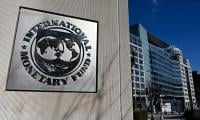KARACHI: Date palm growers in Sindh are facing losses worth billions of rupees, as export of dried dates to India has been suspended since tensions escalated between Pakistan and India on the border in February, 2019.
Dr Nafisa Shah, member of national assembly from Khairpur Mirs, in a letter to Abdul Razak Dawood, advisor for commerce, textile, industry and production has highlighted the issue. She wrote the letter after a meeting with Sindh Chamber of Agriculture President Kabool Muhammad Khatian and Nisar Khaskheli, a date palm grower.
Pakistan produces an estimated 550,000 to 650,000 tons of dates annually, with Sindh contributing around 50 percent in total production. Of this, date plantations in the Kharipur Mirs produce 90 percent of the total date crop in Sindh.
“I am writing to apprise you of an urgent and grave problem of my constituency, including Khairpur and Sukkur districts, concerning the blockade on date crop exports,” her letter said.
Fresh dates were exported to the US, Canada, France, Bangladesh, Indonesia, Malaysia, Germany and UAE, while 90 percent of dried dates get exported to India via Lahore.
Around 95 percent of export consisted of dried dates, while only five percent was exported in
form of pasteurised fresh dates, which were less than one percent of total date production in the country.
India and Bangladesh were the largest importers of dried dates from Pakistan. MNA Nafisa Shah’s letter said that since dry dates were mostly exported to India, “the latest trade stand-off between the two countries has stalled all exports, and according to one estimate at least Rs8 billion worth of goods are waiting to be exported.”
She urged on the advisor to resolve this issue, as it was ruining the economy of the region. “Unless this issue is resolved, it will ruin the economy and destroy the livelihoods of the hundreds of thousands of farmers of my district,” her letter added.
The MNA called on the advisor to also work on providing access to alternate markets, as a large part of the population in Khairpur and Sukkur districts depended on date plantations. Dr Nafisa Shah also proposed a comprehensive plan in the letter to develop and finance the sector via the EXIM bank or other export development funds.
Pakistan produces more than 300 varieties of dates, out of these, Begam Jangi of Balochistan, Aseel of Sindh and Dhakki of Dera Ismail Khan were liked the most because of their taste. Due to lack of processing and packaging facilities, these highly valuable varieties did not fetch their real worth in the export market.
Pakistan was the fifth largest date producing country in the world, with around 550,000 tons to 650,000 tons a year following Egypt, Iran, Saudi Arabia and Iraq.
Egypt remains the world leader in date production and cultivation. Each year, this country produces approximately 1.1 million tons of dates. Iran follows it with production of around 0.95 million tons. Saudi Arabia comes at the third place with nearly 0.85 million tons per year, while Iraq was the fourth largest producer with around 0.67 tons every year.
The picture shows a logo of Federation of Pakistan Chambers of Commerce & Industry . — APP/FileKARACHI: Atif Ikram...
The image shows the logo of the Securities and Exchange Commission of Pakistan . — APP/FileISLAMABAD: The Securities...
This image released on January 26, 2023, shows the logo of Archroma. — Facebook/ArchromaKARACHI: Archroma Pakistan...
The logo of the Trade Development Authority of Pakistan . — TDAP website. Mirpur: Kausar Taqadus Gilani, Minister...
This representational image shows Gold bars. — AFP/FileKARACHI: Gold prices in the local market dropped by Rs600 per...
Security personnel walk past the US Federal Reserve building in Washington, DC on Oct 22, 2021. —...







